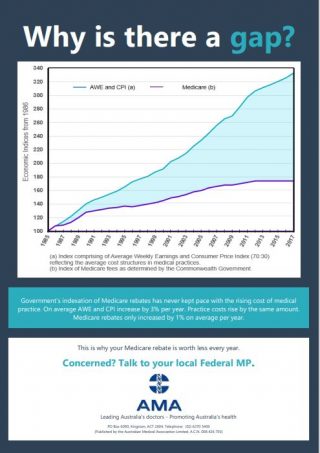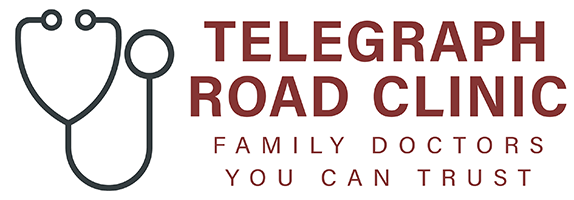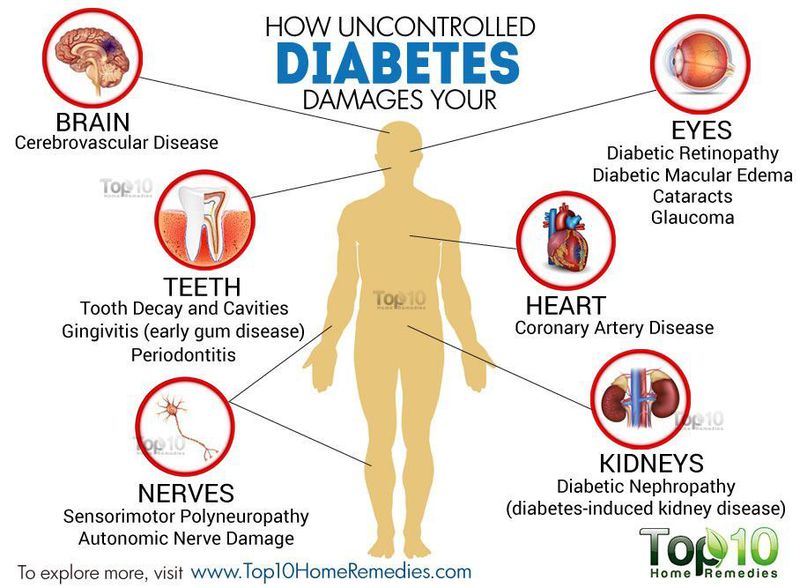Telehealth’s are now only available for COVID-positive patients (confirmed through RAT-test prior to calling to book). Telehealth’s were a useful tool during the COVID lockdowns, as they allowed doctors to consult with patients while maintaining social distancing practices. However, as we have emerged from the lockdown period and return to normalcy, we have elected to reduce telehealth consultations. Telehealth appointments will no longer be available for patients with regard to any issues that could be treated in the clinic. For patients exhibiting fever, respiratory, cough, cold or flu-like symptoms, our daily Isolation Room appointments will provide you with the required services – including medical certificates and prescriptions.
Telegraph Road Clinic News
IMPORTANT INFORMATION REGARDING EAR SYRINGES!
Our practice does not offer ear syringes to patients under 16 years of age under any circumstances! Eligible patients will discuss the procedure with their doctor prior to visiting the nurse for a syringe, and will be required to sign a consent form. Ear syringe appointments will include a $20 additional syringing fee on top of the general consult fee. This $20 fee will NOT have a Medicare rebate, though there will still be a rebate for the consult as per usual. Please contact our friendly receptionists on 3261 7000 to book in an ear syringe appointment if you are interested!
Ear syringing will only be performed, following several days treatment with Ear Clear/Waxsol or some other wax softening agent which can be purchased over the counter from your pharmacist. (Approx 4-5 Days minimum)
The cost of quality medical care is increasing, and the Government Medicare Rebate continues to fail to match these rising costs. To be able to continue to provide complex and quality healthcare to our patients, our new private fee structure has been updated. A full schedule of the updated fees is available on the ‘Fees’ section of our website – under ‘Resources.’ This includes our Saturday fees and irregular hour fees. Please phone reception on 3261 7000 if you have any additional questions regarding our fees or billing policy.
FEE SCHEDULE: 1st December 2025
MEDICARE AUSTRALIA FEE UPDATE: 1st November 2025
Between 6.00am – 8.00am consults are $103.00 with a Medicare Rebate $57.15. It is cheaper for you to see your G.P between the early bird times! The standard consultation fee between 8.00am-4.00pm is $96.00 with a Medicare rebate of $43.90. All patients on a pension or who have a Health Care Card are billed a reduced fee of $92.00 with a Medicare rebate $43.90 for a standard consultation. DVA Gold Card holders have their accounts paid by DVA. DVA White Card holders will have eligible consults paid for by DVA.
If you bring a physical cheque or savings card (not on your phone!) to your appointment, we can claim your Medicare rebate back instantly through our Tyro system!
For those patients using a Macquarie payment card, Tyro will accept payment. Unfortunately, we are unable to ask Medicare Australia to rebate to this card.
Please note: We do not accept American Express for payment
Standard (15 minutes): $96.00
- Medicare Rebate: $43.90
- Gap Fee: $52.10
Long (30 minutes): $173.00
- Medicare Rebate: $84.90
- Gap Fee: $88.10
Extended (45 minutes): $246.00
- Medicare Rebate: $125.10
- Gap Fee: $120.90
60 Mins: $374.00
- Medicare Rebate: $202.65
- Gap Fee: $171.35
Early Morning Standard (between 6.00am – 8.00am): $103.00
- Medicare Rebate: $57.15
- Gap Fee: $45.85
Early Morning Long (between 6.00am – 8.00am): $183.00
- Medicare Rebate: $98.00
- Gap Fee: $85.00
Early Morning Extended (45 minutes): $256.00
- Medicare Rebate: $137.40
- Gap Fee: $118.60
Afternoon Standard (4.00pm onwards): $109.00
- Medicare Rebate: $43.90
- Gap Fee: $65.10
Afternoon Long (4.00pm onwards): $186.00
- Medicare Rebate: $84.90
- Gap Fee: $101.10
Afternoon Extended (45 minutes): $259.00
- Medicare Rebate: $125.10
- Gap Fee: $133.90
Saturday Standard (between 8.00am -1.00pm): $116.00
- Medicare Rebate: $43.90
- Gap Fee: $72.10
Saturday Long (between 8.00am -1.00pm): $184.00
- Medicare Rebate: $84.90
- Gap Fee: $99.10
Saturday Extended (45 minutes): $262.00
- Medicare Rebate: $125.10
- Gap Fee: $136.90
Saturday Afternoon Standard (1.00pm onwards): $123.00
- Medicare Rebate: $57.15
- Gap Fee: $65.85
Saturday Afternoon Long (1.00pm onwards): $200.00
- Medicare Rebate: $98.00
- Gap Fee: $102.00
Saturday Afternoon Extended (1.00pm onwards): $264.00
- Medicare Rebate: $137.40
- Gap Fee: $126.60
WorkCover consultations have an additional $6 fee on top of the consult fee, and must be paid upfront. A receipt will be provided for you to take to claim the full amount back.

We provide all aspects of podiatric care including paediatric care, general foot care, orthotic therapy, ingrown toenail surgery/management and injury management.
We have an onsite HICAPS machine allowing you to claim your health insurance rebate on the spot. Please phone your health fund to determine if you are covered for podiatry.
We accept Medicare rebated Enhanced Primary Care (EPC) plans. Your GP will determine your eligibility for an EPC. If eligible, you are entitlted to up to 5 podiatry visits per year. At the clinic we bulk bill all EPCs.
Home visit available to surrounding areas please contact the clinic for details on 3261 7000.
Services we provide
General Foot Care
Many people visit a podiatrist for general foot care, which includes nail cutting, management of cracked heels, debridement of corns and callouses, and management of fungal infections. Some people require a podiatrist to cut their toenails due to no longer being able to reach the feet to safely cut the nails themselves. It is recommended that high risk feet such as those of a diabetic are cared for by a podiatrist for appropriate nail cutting and minimising the risk of infection.
Ingrown Toenails
An ingrown toenail occurs when the edge of the nail pierces the adjacent skin, often leading to inflammation and infection. There are a number of causes of ingrown toenails which include tight footwear, improper nail cutting, fungal infections, injury to the nail and genetic predisposition. Conservative management of an ingrown toenail consists of your podiatrist gently removing the offending nail edge. Local anaesthetic is available in severe cases. Alternatively, a longer term solution to an ingrown toenail is a partial nail avulsion procedure. This is performed in the clinic under a local anaesthetic. During your appointment your podiatrist will assess your nail and discuss the most adequate treatment options.
Orthotics
Orthotics are prescribed for a number of conditions including flat feet, plantar fasciitis, heel pain, in-toeing, out-toeing, arthritis, bunions, shin splints and neuromas. We will perform a thorough biomechanical assessment of your feet to determine the most appropriate orthotic for you. At Nundah Podiatry Clinic we provide both prefabricated orthotics and custom orthotics made of either a soft EVA or a firmer polypropylene. Regan will discuss the options with you and recommend the most appropriate style for your feet and condition.
Children’s Feet
Children can experience many of the same conditions as an adult, including plantar fasciitis, arthritis, flat feet, bunions, ingrown toenails, corns and callouses and plantar warts. Other common conditions seen in children include:
– In-toeing or out-toeing, which often requires orthotics to correct
– Sever’s Disease, which is pain at the back of the heel and is managed with stretching, heel raises and orthotics
– Osgood-Schlatters, which is pain at the front of the knee and is managed with stretching and taping
– Hyper-mobile joints, which may require orthotics to provide support
If you believe there is something wrong with your child’s foot, it is advisable to make an appointment with a podiatrist who will perform a thorough assessment and determine the most appropriate treatment option.
Plantar Fasciitis (Heel Pain)
Heel pain is one of the most common presenting complaints at our clinic. It ranges from mild to severe in its nature, and if left untreated can lead to serious complications. People often describe symptoms including morning pain, shooting pain, swelling and pain with activity. The most common cause of heel pain is plantar fasciitis which is inflammation of the thick fibrous band that supports the arch of the foot. Contributing factors include flat feet, inadequate footwear, sudden change in activity and weight gain. Treatment consists of strapping, anti-inflammatories, footwear modification, stretching and orthotics. If required, Regan will be able to provide you with an orthotic that will correct your foot alignment and allow healing to occur.
Corns and Callouses
Corns and callouses are areas of thick skin that usually develop due to excessive pressure. They can often be quite painful and the only appropriate treatment is debridement by a qualified podiatrist. Often there is an underlying biomechanical issue which may need addressing via offloading padding or orthotics.
Diabetes
Diabetics are at a greater risk of developing circulatory and sensory problems in the feet. Regular foot checks by a qualified podiatrist are recommended every 3 to 6 months for early detection of foot complications. Diabetic ulcers require urgent podiatry care with regular debridement and sufficient offloading. It is recommended that diabetics visit a podiatrist regularly for appropriate nail cutting.
Other Conditions
Other common conditions we see include:
– Arthritis
– Achilles tendinitis
– Shin splints
– Plantar warts
– Flat feet
– Neuromas
– Bunions
– Extensor tendinitis
– Bone fracture
280 Australians develop diabetes every day.
That’s one person every five minutes. This July promote diabetes awareness among your friends and loved ones and urge them to take preventative health measures to prevent this disease.
What is diabetes?
Diabetes is a serious complex condition which can affect the entire body. Diabetes requires daily self care and if complications develop, diabetes can have a significant impact on quality of life and can reduce life expectancy. While there is currently no cure for diabetes, you can live an enjoyable life by learning about the condition and effectively managing it.
There are different types of diabetes; all types are complex and serious. The three main types of diabetes are type 1, type 2 and gestational diabetes.
IF YOU WOULD LIKE TO DISCUSS DIABETES WITH YOUR DOCTOR, PLEASE BOOK A 30 MINUTE CONSULTATION
Measles Infection can be serious and is very contagious.
Measles, Mumps, Rubella (MMR) is a combination vaccine.
If you are born after 1966 this can be a FREE vaccine, if you have not had previous vaccines, or can be proven as non-immune via pathology tests.
Before travelling overseas, please discuss with your doctor the need to be vaccinated.
You can book your appointment online via Appointuit or call our friendly reception team at 3261 7000.
Forearms are integral to hand and arm movement, so pain in this region can be highly disruptive to daily life. Forearm pain can result from a number of different causes, each requiring a different treatment approach.
The forearms are composed of the radius and ulna bones, which span the length of the forearm to intersect at the wrist joint. The location means that the forearm is intrinsically involved in a range of everyday arm or hand movements.
As a result of this, injury or discomfort in the forearm can have a wide-ranging impact on mobility and interfere with daily functioning. For example, forearm pain can make it difficult to type on a keyboard or grip an item with the hand.




